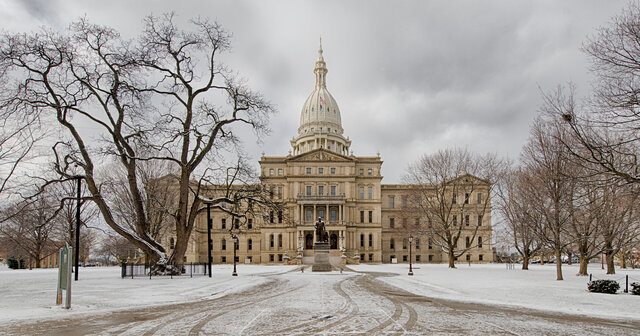
This article originally appeared in The Detroit News December 24, 2024.
Some years, no one gets what they want for Christmas. That is certainly true for policymakers in Lansing in the closing days of December.
Michigan’s lame-duck legislative session ground to a halt last week. “Lame duck” is that period after a November election, before the new legislature begins in January — a last chance for unfinished business. Lawmaking can be chaotic, and that is especially true of lame-duck sessions, which feature long nights and short tempers. Lansing insiders are quick to compare lame duck to a dumpster fire.
Lame Duck 2024 promised to be spectacular or apocalyptic, depending on one’s policy views. Republicans won control of the state House and will take over in January, depriving Gov. Whitmer and Democratic lawmakers of the trifecta they enjoyed the last two years. Moving forward, Whitmer will need to negotiate with Republicans to pass anything, including a budget. Thus, Democrats were motivated to cram their unfinished business into a few session days in December.
Heading into lame duck, Whitmer’s top priority was securing additional money for business incentives, a big lift after the Legislature already approved $4.6 billion in corporate handouts this session. Among the new proposals: $250 million to demolish and redevelop Detroit’s Renaissance Center.
Senate Majority Leader Winnie Brinks, D-Grand Rapids, hoped to see the House take up bills the Senate sent over earlier this year, including changes to the Freedom of Information Act that would require lawmakers and the governor to respond to public records requests.
House Speaker Joe Tate, D-Detroit, told the Detroit Free Press he wanted to increase unemployment benefits, expand public safety measures and provide access to water to low-income residents. But Tate presides over a Democratic caucus fractured by infighting — a Michigan-Michigan State post-game brawl might be more civil — and his members openly complained about his leadership.
Meanwhile, incoming House Speaker Matt Hall, R-Richland Township, and his Republican colleagues insisted on addressing paid sick leave and the tips that restaurant servers earn after a state Supreme Court ruling altered the law. Hall also proposed putting more money into the roads, but without raising taxes.
The Democrats’ plan for fast action wobbled when individual House members withheld their votes and even skipped session, depriving Tate of the ability to move legislation. The wheels really fell off on Dec. 19 when the House failed to reach quorum and abruptly adjourned until Dec. 31.
This left hundreds of bills stranded in the legislative process, like so many airplanes idling on the runway when air traffic control goes down. The Senate held a marathon session last week, though it was limited to House-approved bills, and Senate Republicans used procedural tools to slow the pace.
A number of good ideas failed to reach the governor’s desk: transparency for government records, the roads proposal and bills to eliminate regulations and streamline approval processes in the housing market. But for those worried about the scope and cost of government, the harmful policy that had been pending posed a bigger concern. Most of those harmful bills were also stranded when the House adjourned.
No one gets everything they want for Christmas, but Matt Hall got quite a lot. While his stated priorities stalled, his moves proved him a savvy parliamentary negotiator. Hall can address roads, tips and sick leave in January as the newly minted speaker.
Ultimately, the real winners in lame duck were families, taxpayers and small business owners who were spared legislative action that would have increased costs and further bogged down Michigan’s economy.
Permission to reprint this blog post in whole or in part is hereby granted, provided that the author (or authors) and the Mackinac Center for Public Policy are properly cited.
Get insightful commentary and the most reliable research on Michigan issues sent straight to your inbox.

The Mackinac Center for Public Policy is a nonprofit research and educational institute that advances the principles of free markets and limited government. Through our research and education programs, we challenge government overreach and advocate for a free-market approach to public policy that frees people to realize their potential and dreams.
Please consider contributing to our work to advance a freer and more prosperous state.

Donate | About | Blog | Pressroom | Publications | Careers | Site Map | Email Signup | Contact